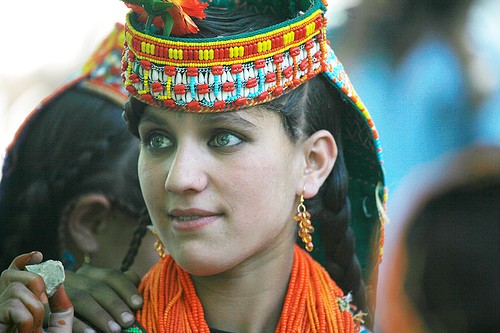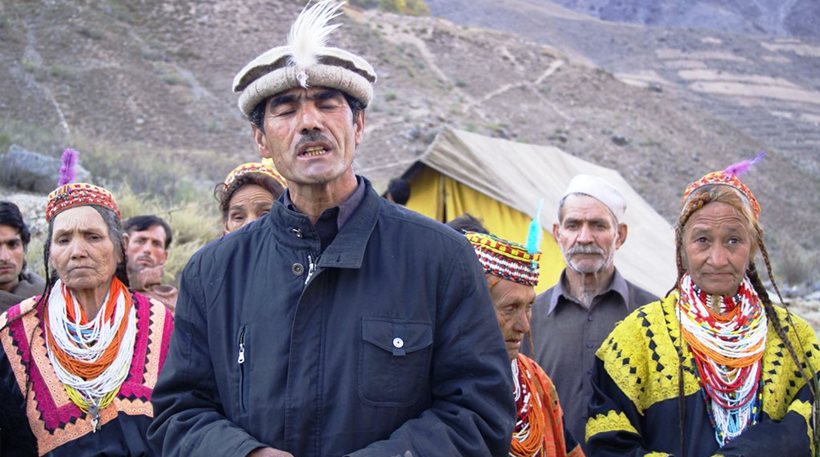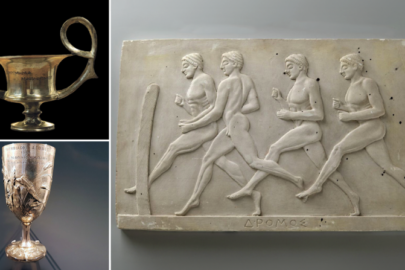The Kalash people – the blonde-haired and blue-eyed tribe of Pakistan – claim to be the direct descendants of Alexander the Great, however extensive genetic testing has shown no connection.
DNA testing on 23 Kalash people by the Wellcome Trust Sanger Institute of Cambridge took samples from Kalash residents of three different valleys but could not confirm Greek lineage.
According to the abstract compiled by researchers from the UK, Italy and Pakistan, with Qasim Ayub at the helm, there is nothing to support their claim to being Greek:
The Kalash represent an enigmatic isolated population of Indo-European speakers who have been living for centuries in the Hindu Kush mountain ranges of present-day Pakistan. Previous Y chromosome and mitochondrial DNA markers provided no support for their claimed Greek descent following Alexander III of Macedon’s invasion of this region, and analysis of autosomal loci provided evidence of a strong genetic bottleneck. To understand their origins and demography further, we genotyped 23 unrelated Kalash samples on the Illumina HumanOmni2.5M-8 BeadChip and sequenced one male individual at high coverage on an Illumina HiSeq 2000. Comparison with published data from ancient hunter-gatherers and European farmers showed that the Kalash share genetic drift with the Paleolithic Siberian hunter-gatherers and might represent an extremely drifted ancient northern Eurasian population that also contributed to European and Near Eastern ancestry. Since the split from other South Asian populations, the Kalash have maintained a low long-term effective population size (2,319-2,603) and experienced no detectable gene flow from their geographic neighbors in Pakistan or from other extant Eurasian populations. The mean time of divergence between the Kalash and other populations currently residing in this region was estimated to be 11,800 (95% confidence interval = 10,600-12,600) years ago, and thus they represent present-day descendants of some of the earliest migrants into the Indian sub-continent from West Asia.
The examination of DNA shows that the Kalash community has more in common with Siberian hunter-gatherers than Alexander the Great.

































